
Amid all the skeletons that tumbled out of the closet in the Samajwadi Party family feud, it was something that patriarch Mulayam Singh Yadav said on 16 January that raised eyebrows.
He said of his son, Uttar Pradesh Chief Minister Akhilesh Yadav: "Akhilesh is anti-Muslim. A Maulana told me that he has not done anything for Muslims."
And he didn't stop there. "I appointed Javed Ahmed as DGP of UP, and Akhilesh objected to this as well. He never listens to me," he added.
That was the day when the Election Commission recognised the Akhilesh faction as the 'real' Samajwadi Party, and granted it rights to the cycle symbol.
A sea change in strategy?
Mulayam made the statement despite its potential consequences - which has been his trademark. Ever since the Babri Masjid was razed in 1992, he has continued to milk Muslim politics in this very manner.
In contrast, over the last five years, Akhilesh has very much distanced himself from his father's brand of Muslim politics. Even with elections around the corner, he hasn't issued a single appeal to the SP's Muslim supporters to vote for the party, nor has he sent any indirect messages to them.
Former Chief Minister and Bahujan Samaj Party supremo Mayawati has also taken a non-traditional approach this time. Unlike Mulayam, Mayawati has never indulged in openly pro-Muslim politics. In fact, three times in the past, she has formed the government with the support of the right-wing Bharatiya Janata Party. This has made Muslims of the state look at her doubtfully.
However, this time, Mayawati has launched her campaign with a completely new strategy. She has given 99 tickets to Muslim candidates. She has also merged strongman Mukhtar Ansari's Qaumi Ekta Dal with her party, giving three seats to his family in return.
It's clear that both the important regional parties in UP are trying to redefine Muslim politics in these elections. While Akhilesh is making the politics of development his weapon of choice in this fight, Mayawati wants to combine her traditional Dalit support base with Muslims in order to come back to power.
Reasons for this departure
Perhaps the prime reason for Akhilesh's new tack is the way the BJP managed to galvanise Hindus ahead of the 2014 Lok Sabha polls, saying that the SP was only focussed on appeasing Muslims.
Mayawati's strategy, on the other hand, is probably shaped by the fact that Dalits alone cannot carry her to power. In 2007, when she had won a comfortable majority, she had forged a Dalit-Brahmin combine.
Now, she believes that the Modi wave of 2014 is on the ebb, and is confident that the Dalits will return to her camp. That's why, in order to guarantee her success, she's making aggressive attempts to forge a Dalit-Muslim combine.
What the Muslims think
About 19% of UP's gigantic population is Muslim, and it remains to be seen what they feel about the SP and BSP's change of tack.
As Aligarh Muslim University associate professor Mohammad Sajjad puts it: "Muslims have traditionally liked the SP and the BSP. But the present reality is that the Muslim finds himself in a state of helplessness. He cannot go with the BJP, the Congress has no standing in the state, and consequently, he's looking for a trustworthy alternative. That's why he keeps gravitating towards the SP and the BSP, and the parties take advantage of this. Mayawati is doing something today; Akhilesh will start doing it again tomorrow.
Mulayam and Muslims
UP's political history can be divided into two distinct phases: before and after the Babri demolition. It's the same case with Muslim politics - before 1992, the Muslims were largely with the Congress, while some dabbled in socialist parties too.
Once Mulayam ordered the police to fire at karsevaks who attacked the Babri Masjid in 1990, he emerged as a tall leader of the Muslims. For the next two and a half decades, on the basis of this, Mulayam remained integral to the politics of UP and the country. But he hardly did anything noteworthy to change the economic and political condition of the Muslims.
Mulayam's politics have always been labelled 'Mullah-Maulvi centric'. He erected his political edifice on the insecurity of the community. The religious requests of Muslims were the centre point of his politics. Mulayam continued to protect a whole army of dharm-gurus and imams to serve his political interests.
Nadeem Hasnain, professor of anthropology at the Lucknow University, says: "All of Mulayam's efforts were symbolic. Instead of the real issues, Muslims were pushed towards religious and sentimental issues. At most, he used to give jobs to 2,000-3,000 Urdu teachers."
The result is that Muslims, a majority of whom remained backward in this period, continued to battle their religious insecurity instead of thinking about health, education and rights.
The Owaisi factor
But the times, they are a-changing. The expectations and aspirations of the Muslims are rising. An ambitious class of Muslims has emerged, which is tech-savvy, and wants political power. This class has now begun exposing Mulayam's politics among all their Muslim brethren.
This is why some small Muslim political groups have started rising. Despite their limited areas of influence, they have begun affecting the politics of the state. Among these are the likes of the Peace Party, to parties with a more pan-India presence, like Asaduddin Owaisi's All India Majlis-e-Ittihadul Muslimeen (AIMIM).
Professor Hasnain says: "For the last few years, Muslims have been losing faith in leaders like Mulayam. This is creating space for politics with a Muslim identity. The way Asaduddin Owaisi is exposing Mulayam again and again in the Lok Sabha, as well as in the state, is harming Mulayam's brand of politics. Owaisi may not get votes, but he will greatly harm the SP in the future."
Of the 403 seats in Uttar Pradesh, about 120 are decided by which way the Muslims vote. This is the reason why there has always been a possibility for a separate Muslim leadership.
Owaisi may not be in a position to alter the election results, but this is the change he's trying to bring about. According to Prof. Sajjad, while a separate Muslim polity is a distant dream, Owaisi has managed to change the idea into a political discourse. And this spells danger for the SP and the BSP.
Akhilesh's strategy
It's clear that Akhilesh wants to be a leader who is acceptable to all. One school of thought says that by not appealing directly to Muslims, he is trying to improve his reputation among the Hindus, especially the upper castes, and project the image of an inclusive leader.
He is under pressure from Narendra Modi's Hindu-oriented and development-oriented cartel, which is why he is shying away from openly Muslim-centric politics.
Till now, Akhilesh is taking Muslims more or less for granted. But he can't continue with this for long, because this strategy has a dangerous flipside - Muslims will turn away from the SP.
Mulayam and Akhilesh's politics have had another negative impact on Muslims - they've been reduced to nothing more than the SP's votebank. The SP has always used a combination of the state's 19% Muslims and 9% Yadavs to ride to power, but when it came to working for these communities, the Yadavs always favoured the Yadavs.
Faizan Mustafa, vice-chancellor of the National Academy of Legal Studies and Research (NALSAR) University, points out: "Muslims always trusted Mulayam never to ally with the BJP, no matter what behind-the-scenes pacts they might have. But now, it seems like Akhilesh may even go with the BJP after the elections, if the need arises. This is a major change in UP's politics."
Mayawati's strategy
Forty of the BSP's 99 Muslim candidates will be in the fray in the first two phases of the polls, which take place in western UP,
But Prof. Mustafa says: "Giving as many tickets as possible is no guarantee to success. If there was such a shortcut, even other parties would've done the same. In fact, I feel giving tickets to so many Muslims may be counterproductive on other seats. Besides, it's not necessary that a Muslim candidate will address the basic problems faced by the Muslims. In fact, a Muslim would prefer a secular Hindu who is more sensitive to his problems and can solve them."
Another problem Mayawati faces is that she doesn't have a single tall and trustworthy leader to project as the party's Muslim face. The list she has given to the Election Commission features just three or four star Muslim campaigners - two of whom are Naseemuddin Siddiqui and his son. Neither of them has a particularly strong grip among the people of the community, nor mass appeal. They also hail from Bundelkhand, which has few Muslims. In western UP, they are considered outsiders.
The problem is that while Mayawati has insisted she won't have anything to do with the BJP after the elections, her past dalliances with the BJP make Muslims wary of her.
Regardless, Mayawati has shaped her Muslim strategy with deep insight and understanding. UP's Muslims largely follow one of two schools of faith - the Sufi and the Wahhabi, the latter of which is much more conservative and extremist.
A majority of UP's Muslims follow the Sufi way, and this is the group from which Mayawati has drawn most of her candidates. Prof. Hasnain says: "This strategy may not bring her electoral gains across the state, but on the seats where these candidates are in the fray, it will definitely help her party."
Faultlines among the Muslims
Prof. Hasnain talks about faultlines in the Muslim community that are present all over the state, in different forms, and influence the elections.
It's not just about Pasmandas (backward) against Ashrafs (the 'upper caste' elite) either.
Take, for example, the case of Aligarh. Over here, among the Pasmandas, there are two big castes - Qureshis and Saifis. They've been at loggerheads for generations, and vote as per the diktats issued by their leaders.
Similarly, in Mau and Azamgarh in eastern UP, there is a clear division between the Sheikh and Ansari subcastes among the Ashrafs.
Prof. Sajjad says: "If Pasmandas and Ashrafs are divided due to the politics of the SP and the BSP, then the BJP stands to gain."
Whether it is the SP or the BSP, neither is actually dabbling in any 'new' kind of politics. It's only their roles that have changed.
With its new aspirations, the Muslim community is refusing to be tethered to the old ways. Thus, neither party should take their votes for granted.
The sooner they realise this, the better it'll be for them.
Edited by Shreyas Sharma
First published: 4 February 2017, 9:13 IST

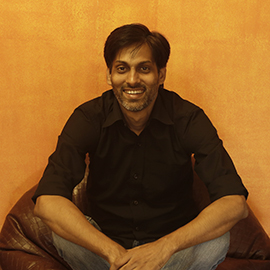
_231291_300x172.jpg)
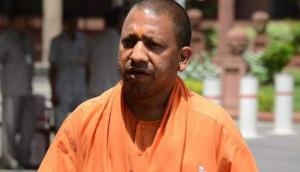
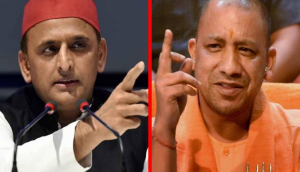
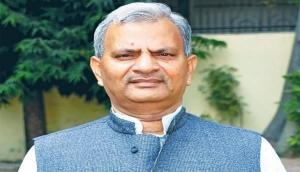
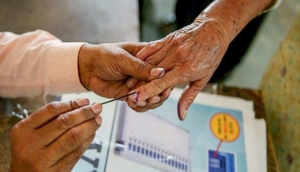
![BJP's Kapil Mishra recreates Shankar Mahadevan’s ‘Breathless’ song to highlight Delhi pollution [WATCH] BJP's Kapil Mishra recreates Shankar Mahadevan’s ‘Breathless’ song to highlight Delhi pollution [WATCH]](https://images.catchnews.com/upload/2022/11/03/kapil-mishra_240884_300x172.png)

![Anupam Kher shares pictures of his toned body on 67th birthday [MUST SEE] Anupam Kher shares pictures of his toned body on 67th birthday [MUST SEE]](https://images.catchnews.com/upload/2022/03/07/Anupam_kher_231145_300x172.jpg)






